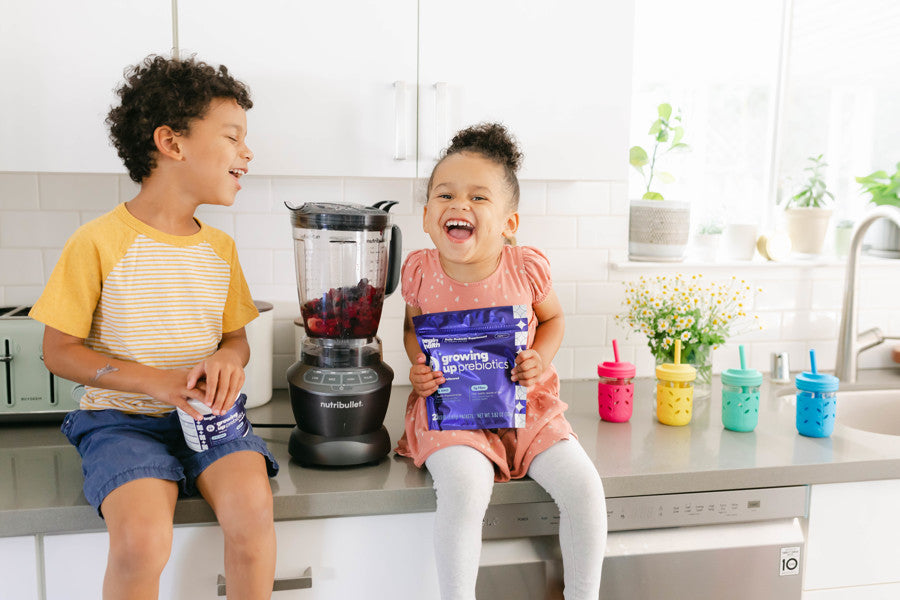Your Cart is Empty
Continue shopping5 Ways Laxatives Can Impact Your Kid's Health
Medically Reviewed by May Zhu, RDN | Published May 20, 2024
share this article

Constipation is a common concern among school-aged kids, and laxatives are often used for relief. While effective short-term, prolonged laxative use especially without medical supervision can have side effects worth understanding.
Here are five potential ways long-term laxative use might affect your kid's health.
1. Electrolyte Imbalance
Certain laxatives, particularly stimulant and osmotic types can disrupt levels of key electrolytes like potassium and sodium.
This may lead to symptoms such as fatigue, muscle weakness, or in more serious cases, irregular heart rhythms¹. Kids are especially sensitive to these shifts due to their smaller body fluid reserves.
2. Dehydration
Osmotic laxatives work by pulling water into the intestines. This water loss can sometimes outpace what the body replaces, especially in kids who already have a higher turnover of fluids. Without adequate hydration, laxative use can lead to dizziness, dry mouth, and even worsen constipation².
3. Risk for Dependency Concerns May Increase
PEG-based (polyethylene glycol) laxatives are generally safe for short-term use, but overuse of stimulant laxatives may lead to decreased bowel muscle tone over time.
This can make the body reliant on laxatives for motility, potentially complicating recovery from chronic constipation³.
Daily reads to help your little ones lead happier and healthier lives.
Buy Now
Join the
Happy Gut Club
4. Emotional and Behavioral Effects
Chronic constipation itself and the anxiety, discomfort, or social stress it causes can lead to behavioral concerns. Studies have linked early childhood constipation and soiling with increased emotional challenges such as anxiety and withdrawal⁴.
While laxatives aren't directly causal, the emotional toll of needing them long-term shouldn't be overlooked.
5. Nutrient Absorption and Gut Microbiome Disruption
Frequent use of some laxatives may reduce the time nutrients spend in the digestive tract, potentially impairing the absorption of important nutrients like calcium, magnesium, and vitamin D. PEG-based laxatives may also temporarily alter the gut microbiome, which plays a critical role in immunity, digestion, and even mood regulation⁵.
Summary
Laxatives can offer important relief but their use should be time-limited and monitored by a healthcare provider. If your kid struggles with constipation, first-line solutions like increasing dietary fiber, prebiotics, hydration, and movement may support a healthier, more sustainable path to regularity.

Author
May Zhu, RDN
Trending

How to Transition Kids Off Stool Softeners Safely
read now
How to Know If Your Kid Needs a Stool Softener (or Something Else)
read now
Why Parents Are Choosing Prebiotics Over Stool Softeners for Kids
read now






